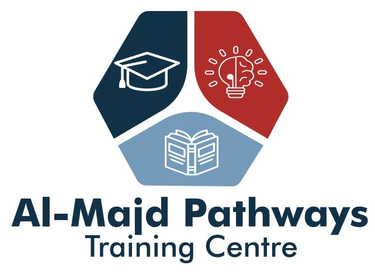
Finance & Accounting for the Oil & Gas Industry
£7850.00
INTRODUCTION
The Financial Management in the Oil & Gas Sector training course equips delegates with essential financial knowledge and skills, enabling them to proficiently recommend appropriate financing methods and prepare, comprehend, and assess financial accounts within the Oil & Gas industry context. This course places emphasis on finance and accounting challenges specific to the industry, including IFRS 6 Exploration for and Evaluation of Mineral Assets, Accounting Approaches, "Successful Efforts," and "Full Cost" (FC) Method, and Accounting for Reserves, Resources, & Assets.
This training course will encompass:
An in-depth understanding of finance and accounting practices in the Oil & Gas sector, focusing on global best practices.
Examination and assessment of cutting-edge techniques.
Skill enhancement through interactive sessions.
Vital discussions of the most recent accounting issues confronting the Oil & Gas industry.
TRAINING OBJECTIVES
Upon completing the course, participants will be able to:
Recommend suitable methods for financing capital projects.
Evaluate capital investment proposals effectively.
Prepare financial statements following International Financial Reporting Standards (IFRS).
Evaluate financial statements to identify and suggest improvements within their organizations.
WHO SHOULD ATTEND?
This training course is tailored for individuals currently working in or aspiring to work in the Oil & Gas sector. It is especially suitable for:
Those responsible for raising and managing finances.
Professionals involved in making or contributing to capital decisions.
Individuals seeking a deeper understanding of finance and accounting.
Department heads with direct finance and accounting responsibilities.
Decision-makers relying on financial budgets.
TRAINING APPROACH
The Financial Management in the Oil & Gas Sector training course employs effective learning methods to ensure comprehensive understanding, reinforce knowledge, develop practical skills, and encourage critical evaluation of information. Engagement is maintained throughout each session via various formats, including:
Real-world Oil & Gas case studies demonstrating the practical application of each topic.
Illustrative excerpts from the annual reports of global Oil & Gas companies.
Discussion of relevant issues raised by participants.
Visual presentations on Oil & Gas accounting matters, focusing on recent events and strategic challenges faced by companies today.
TRAINING OUTLINE
Day 1: Financing Growth & Capital Projects
The Business & Financial Environment
Risks confronting the Oil & Gas sector
Identifying Growth opportunities
Financing Growth via Equity, Debt, and alternative sources
Evaluating Capital Investment using Payback, ARR, NPV & IRR
Capital Rationing – Internal & External
Day 2: Accounting in the Oil & Gas Industry
The Accounting System
Understanding the Annual Report
Preparing Financial Statements in accordance with IFRS
IAS 18: Revenue & IFRS 17 Revenue from Contracts with Customers
IFRS 6: Exploration for and Evaluation of Mineral Assets
Accounting Approaches – The "Successful Efforts" (SE) Method or the "Full Cost" (FC) Method
Day 3: Accounting for Reserves, Resources & Assets
Resources & Reserves – their significance and magnitude
Reserve Classification & Reserve Quantity Disclosures
Accounting for Assets & Relevant IFRS requirements: IAS 16, 36, 37, 38 & 39
Depreciation, Depletion and Amortisation (DD&A)
Ceiling or Impairment Tests
Decommissioning, Removal & Restoration of Assets
Day 4: Business Combinations, Joint Arrangements & Production Sharing Agreements
The Imperative for Cooperation in a Capital-Intensive industry
IFRS 3 Business Combinations
IFRS 10 Preparing and Presenting Consolidated Statements
IFRS 11 Joint Arrangements, Joint Operations & Joint Ventures
Production Sharing Agreements
Revenue, Cost, Cashflow & Reserve Implications
Day 5: Financial Analysis to Evaluate Performance and Improve Efficiency
Analysis of Financial Statements
Profitability, Liquidity, Operational & Solvency measures
Off-Balance Sheet Items & Contingencies
Investment Measures of Leading International Oil & Gas Companies
Enhancing Return on Equity
Implementing change in light of analysis
Certificate of Completion: Upon successful completion of the programme, participants will receive a Certificate of Completion from Al-Majd Pathways Centre (APC).
Get in touch with us today.
Follow
Sign-up for our newsletter
0044 7466410010
©2025 All rights reserved.
